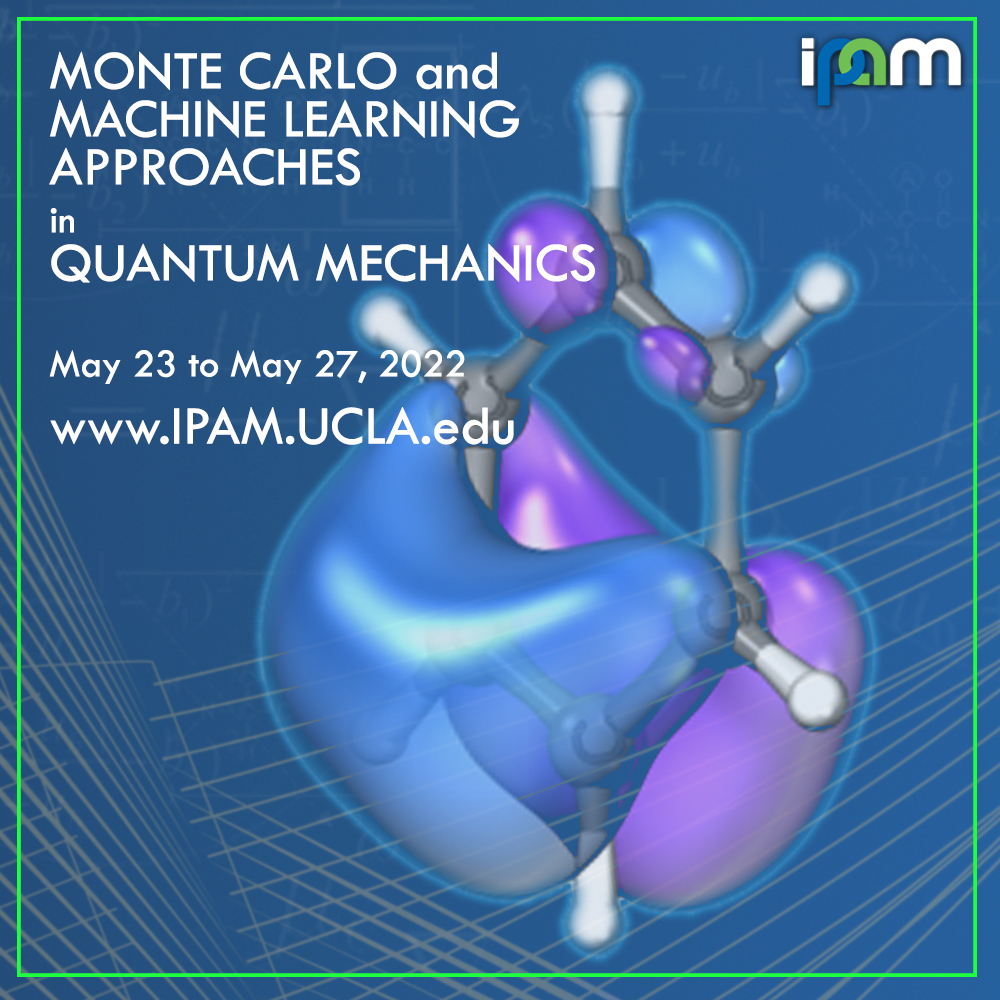Anouar Benali - multideterminant many-body methods to describe ground and excited state properties
Presenter
May 25, 2022
Abstract
Recorded 25 May 2022. Anouar Benali of the Argonne National Laboratory presents "Using multideterminant many-body methods to describe ground state and excited state properties of strongly correlated materials" at IPAM's Monte Carlo and Machine Learning Approaches in Quantum Mechanics Workshop.
Abstract: "Understanding and accounting for strong correlations in ab-initio simulations is essential for a large class of materials. In the past decades, many studies using Density Functional Theory (DFT) corrected for strong correlation with an ad-hoc Hubbard U energy were published reproducing many important properties of the material. While DFT+U can reproduce a known property (band gap or lattice parameter), the value of U needs to be updated for each new property making the approach non-predictive. In recent years, many-body methods such as diffusion Monte Carlo (DMC) have showed great success at reproducing ground state and excited state properties of many molecules and solids containing 3d and 4d metals (by including explicitly spin-orbit Coupling). While the accuracy of DMC can still be affected by the fixed-node approximation imposed by the initial trial wavefunction, such approximation can be systematically improved by using an increasingly larger multi-determinant trial wavefunction, better describing the real nodal surface of the many-body system.
In this talk we use a combination of Diffusion Monte Carlo (DMC) and select Configuration Interaction (sCI) for solids to describe the orbitals of a strongly correlated transition metal material, leading to a better description of the energetics of ground and excited states and in fine, a better prediction of band gaps, opening the path to more reliable and trial-wavefunction invariant DMC calculations."
Funding/Acknowledgement:
" This work was supported by the U.S. Department of Energy, Office of Science, Basic Energy Sciences, Materials Sciences and Engineering Division, as part of the Computational Materials Sciences Program and Center for Predictive Simulation of Functional Materials.”
Learn more online at: http://www.ipam.ucla.edu/programs/workshops/workshop-iv-monte-carlo-and-machine-learning-approaches-in-quantum-mechanics/?tab=schedule
